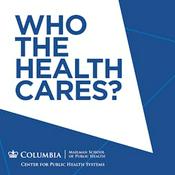Why do public health departments have such little power, so few dollars, and are undervalued while their counterparts in the medical care system, especially physicians and hospitals, have influence, money, prestige, and respect
There is no single or simple answer to these questions. But let’s start by looking back at three periods of American health care history: the emergence of the modern public health agency in the mid to late-19th century, the growing power of the American Medical Association in the early 20th century, and the Presidency of Harry Truman in the late 1940s.
The review of these eras reveals a public health system run by government, in a society that has a bias in favor of the private sector and a public health system that must at times balance individual rights against community needs, in a society that is generally unhappy with perceived infringements on individual rights.
The politics of public health are unlikely to change unless public health officials can persuade both policymakers and the public that its work is providing real value and real benefit in everyday life
Chapter Markers
00:00 December 12th: Launch Day and Bagels
01:46 Medical Care Spending vs Public Health
03:47 The Great Sanitary Awakening
07:05 The Rise of the AMA
09:44 Harry Truman's Healthcare Vision
12:22 Why Medical Care Won
14:16 Six Reasons for Limited Influence
About Michael Sparer
Michael S. Sparer, J.D., Ph.D. is Chair of the Department of Health Policy and Management at Columbia University's Mailman School of Public Health, where he has taught for over 30 years. He also directs the Center for Public Health Systems, which examines how America's fragmented public health infrastructure functions and how it can better serve communities.
Professor Sparer’s research examines how policy shapes politics both in health insurance systems and in local health departments. He is particularly expert in Medicaid policy and in the inter-governmental dynamics that have shaped the evolution of that program. His work on public health has also focused on federalism and on the ways in which local health departments respond to changing political and fiscal environments. Before his academic career, he spent seven years as a litigator for the New York City Law Department. He is a three-time recipient of Columbia teaching excellence awards and former editor of the Journal of Health Politics, Policy and Law.
About the Mailman School of Public Health, Center for Public Health SystemsThe Center for Public Health Systems at Columbia's Mailman School of Public Health conducts needed research, facilitates public discussions, develops policy proposals, and provides educational programs, all with the goal of encouraging a better, more efficient, and more equitable public health system. This work builds on the recognition that the nation’s public health system is currently under-resourced, under-paid, and under-valued and that a stabilized and strengthened system would benefit all of us.

